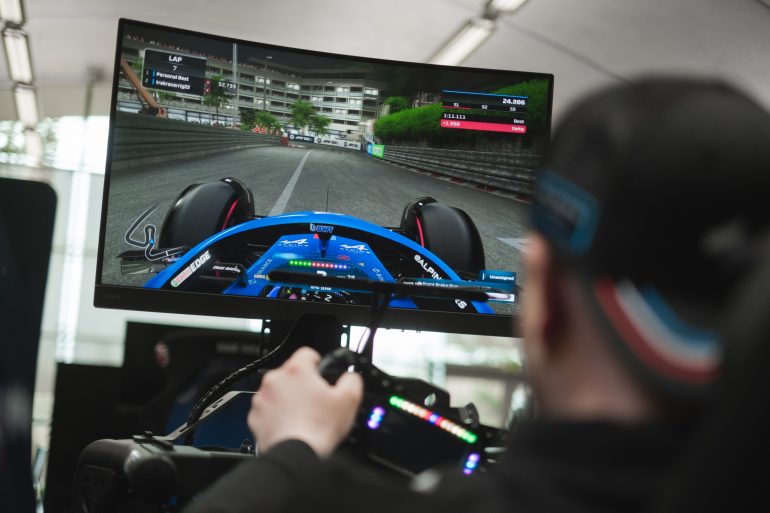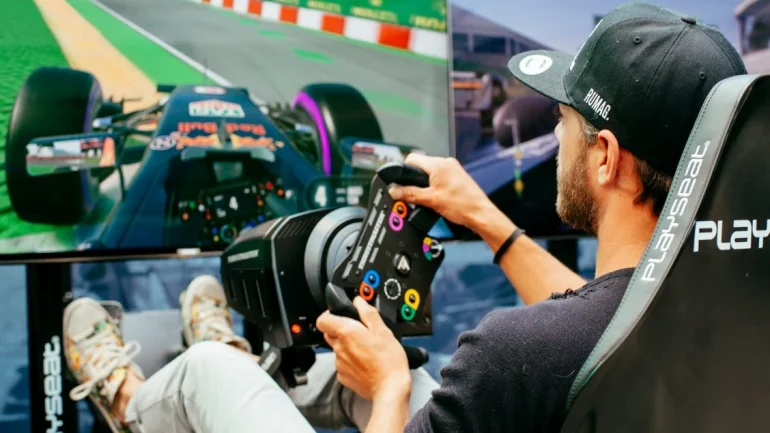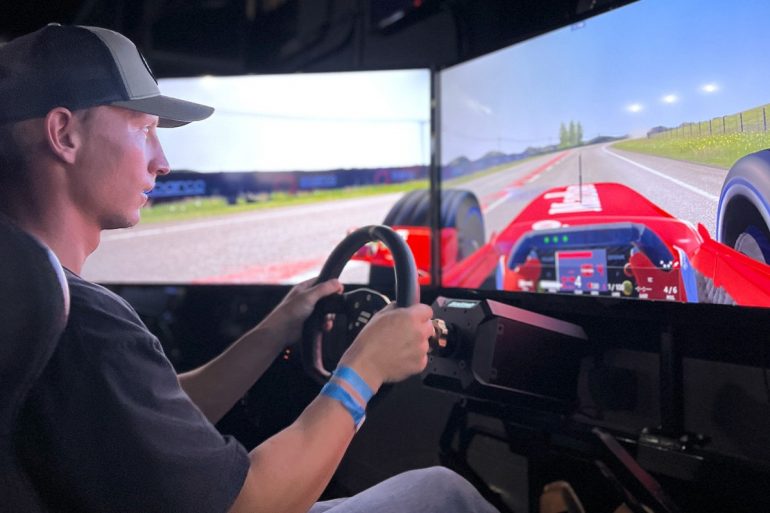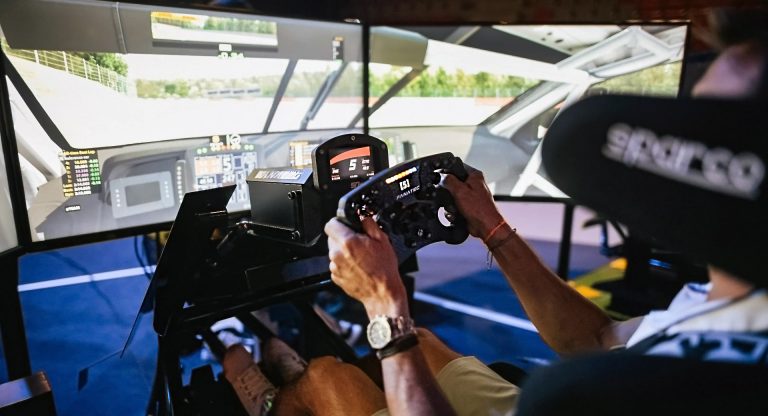Sim racing, or simulated racing, has evolved from a niche hobby to a competitive sport that attracts enthusiasts worldwide. Whether you’re looking to get a realistic racing experience or aiming to compete at the highest levels, improving your reaction time is crucial.
If you’re new to sim racing, it’s essential to understand that reaction time is a vital skill that separates casual players from serious competitors. Reaction time in sim racing refers to the speed at which a driver can respond to visual and auditory cues, such as a change in track conditions, the actions of other racers, or feedback from the racing hardware. The faster you can react, the better your chances of avoiding accidents and making strategic overtakes.
1. Practice Regularly with Focus

Consistent practice is a fundamental way to improve reaction times. It’s not just about spending time on the simulator; it’s about focused practice. Set specific goals for each session, such as improving lap times, mastering a particular track, or practicing overtaking maneuvers. Regular practice helps your brain and muscles adapt to the demands of sim racing. It enables you to develop muscle memory, allowing you to react almost instinctively to changes in the race environment.
2. Use a High-Quality Sim Racing Setup
Investing in a high-quality sim racing setup can significantly enhance your performance. A good setup includes a racing wheel with force feedback, pedals, and a comfortable racing seat. Force feedback from the wheel provides tactile feedback, helping you feel the car’s behavior on different track surfaces. A high-resolution monitor or VR headset can improve your visual response times by providing clearer and more detailed views of the track. Accurate pedals allow for precise control over acceleration and braking, enabling you to react more quickly to changes in the race.
3. Train with Reaction Time Drills
Incorporating specific reaction time drills into your training routine can be highly beneficial. Simple exercises such as practicing quick starts, responding to light signals, or using apps and online tools designed to improve reaction times can help. For example, some software applications provide scenarios where you have to react to on-screen prompts, simulating real racing conditions. Regularly engaging in these exercises can sharpen your reflexes and reduce your reaction times in actual races.
4. Maintain Physical Fitness

Physical fitness plays a vital role in reaction time and overall performance in sim racing. Cardio exercises like running or cycling can improve cardiovascular health, enhancing blood flow and oxygen supply to the brain. Strengthening your core muscles can improve your posture, which is crucial for long sim racing sessions. Hand-eye coordination exercises, such as playing catch or using reaction balls, can also help improve your reflexes. A fit and healthy body contributes to quicker reaction times, better concentration, and longer endurance during races.
5. Optimize Your Mental State
Mental preparedness is as important as physical training in sim racing. Stress and anxiety can slow down reaction times and lead to mistakes. Practicing mindfulness techniques such as meditation or deep breathing can help maintain a calm and focused mind. Visualization techniques, where you mentally rehearse the track layout and potential racing scenarios, can also prepare your brain for quick decision-making. Staying mentally sharp ensures that you can respond effectively to unexpected events on the track.
Conclusion

Improving your reaction time is a continuous process that involves physical training, mental preparedness, practice, and the right equipment. By focusing on these areas, you can enhance your response speed, accuracy, and overall performance in sim racing. Whether you are new to sim racing or an experienced driver, these strategies will help you become a more competitive racer, capable of handling the most challenging scenarios on the track. Remember that consistency and dedication are key, and with time, your reaction times will improve, making you a formidable contender in the world of sim racing.

